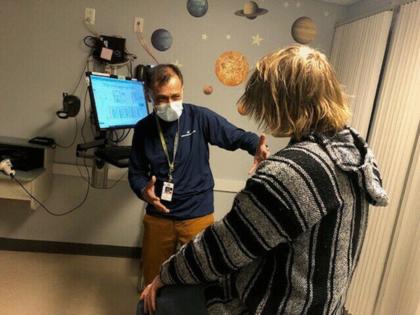More kids are dying of drug overdoses. Could pediatricians do more to help?
Published in Health & Fitness
A 17-year-old boy with shaggy blond hair stepped onto the scale at Tri-River Family Health Center in Uxbridge, Massachusetts.
After he was weighed, he headed for an exam room decorated with decals of planets and cartoon characters. A nurse checked his blood pressure. A pediatrician asked about school, home life, and his friendships.
This seemed like a routine teen checkup, the kind that happens in thousands of pediatric practices across the U.S. every day — until the doctor popped his next question.
“Any cravings for opioids at all?” asked pediatrician Safdar Medina. The patient shook his head.
“None, not at all?” Medina said again, to confirm.
“None,” said the boy named Sam, in a quiet but confident voice.
Only Sam’s first name is being used for this article because if his full name were publicized he could face discrimination in housing and job searches based on his prior drug use.
Medina was treating Sam for an addiction to opioids. He prescribed a medication called buprenorphine, which curbs cravings for the more dangerous and addictive opioid pills. Sam’s urine tests showed no signs of the Percocet or OxyContin pills he had been buying on Snapchat, the pills that fueled Sam’s addiction.
“What makes me really proud of you, Sam, is how committed you are to getting better,” said Medina, whose practice is part of UMass Memorial Health.
The American Academy of Pediatrics recommends offering buprenorphine to teens addicted to opioids. But only 6% of pediatricians report ever doing do, according to survey results.
...continued
©2024 KFF Health News. Distributed by Tribune Content Agency, LLC.







Comments